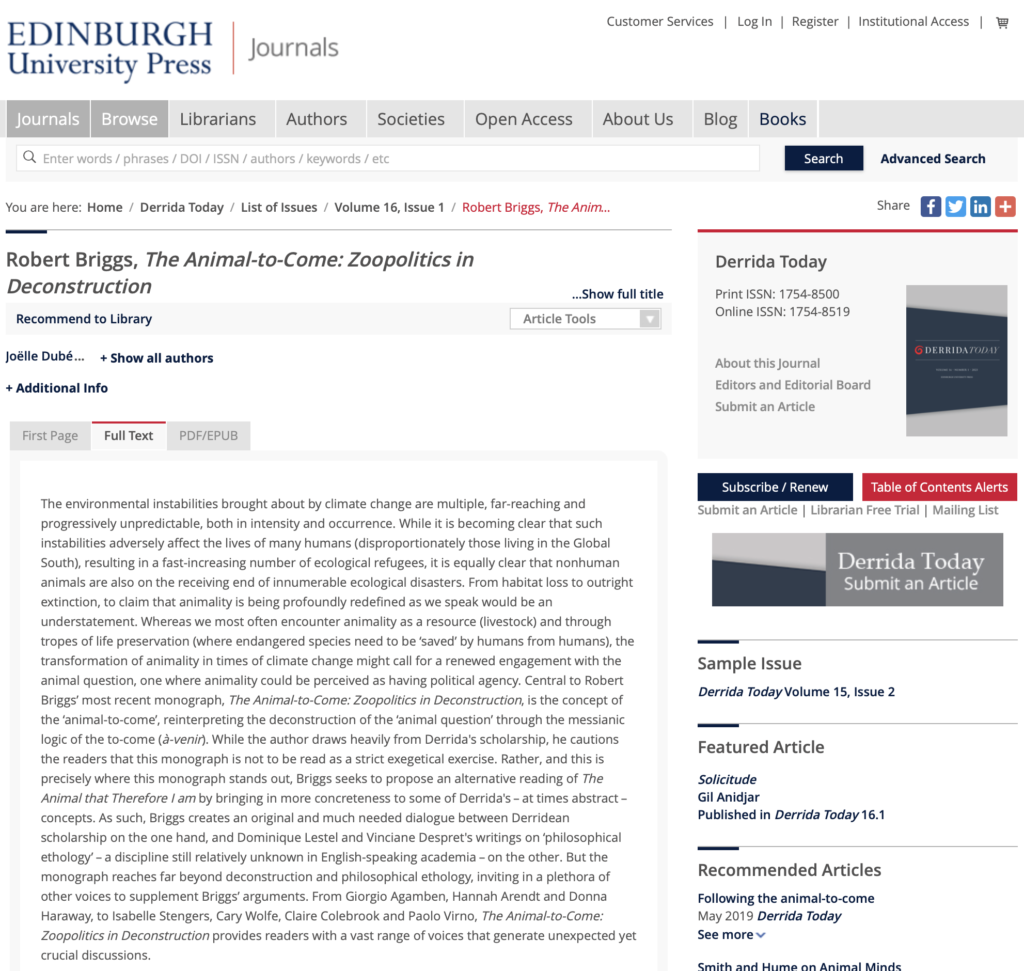The environmental instabilities brought about by climate change are multiple, far-reaching and progressively unpredictable, both in intensity and occurrence. While it is becoming clear that such instabilities adversely affect the lives of many humans (disproportionately those living in the Global South), resulting in a fast-increasing number of ecological refugees, it is equally clear that nonhuman animals are also on the receiving end of innumerable ecological disasters. From habitat loss to outright extinction, to claim that animality is being profoundly redefined as we speak would be an understatement. Whereas we most often encounter animality as a resource (livestock) and through tropes of life preservation (where endangered species need to be ‘saved’ by humans from humans), the transformation of animality in times of climate change might call for a renewed engagement with the animal question, one where animality could be perceived as having political agency. Central to Robert Briggs’ most recent monograph, The Animal-to-Come: Zoopolitics in Deconstruction, is the concept of the ‘animal-to-come’, reinterpreting the deconstruction of the ‘animal question’ through the messianic logic of the to-come (à-venir).
Dubé, Joëlle. “Book Review.” Derrida Today 16 n°1 (May 2023).
